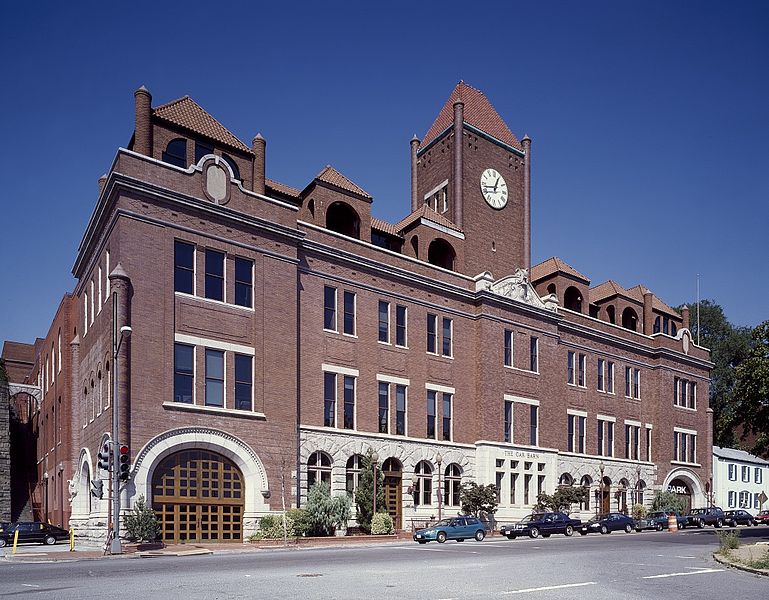The Doctoral Students Coalition (DSC) began to circulate a petition on March 29 asking that Norberto Grzywacz, Dean of the the Georgetown University Graduate School, postpone and reconsider changes to the school’s policy for doctoral students’ stipends and employment. The DSC claims that these changes were made without its approval or foreknowledge, and will effectively require doctoral students to work more hours for a stipend that is not commensurately larger.
Under the current policy regarding doctoral students’ stipends, doctoral students are expected to work an average of 15 hours a week for the University to receive a stipend. They may take on an additional part-time job for the University for five hours a week. The changes to this system require doctoral students to work up to 20 hours a week, and remove the option of taking on another part-time job with the University.
Many members of the DSC are concerned about the consequences of this new policy. According to their statement, the changes could lead to a 33.3 percent increase in working hours with only a 3.8 percent minimum increase in stipend. For the coming academic year, the minimum stipend has increased from $26,000 to $27,000 per year, according to Dean Grzywacz.
“Essentially, grad students are either getting an increase in hours without a proportional pay increase, or (if losing a five hour a week job), receiving a pay cut without a reduction in hours worked,” Deidre Nelms, doctoral student and member of the DSC, wrote in an email to the Voice. “This is unacceptable, and in any workplace this policy would be described as exploitative.” Furthermore, the DSC claims that of the top 30 lower than 90 percent of the living wage in the University’s zip code.
Dean Grzywacz defended the new prohibition on part-time jobs for doctoral students, maintaining that eliminating this type of employment encouraged doctoral students to devote more attention to their required Assistantships. “Ph.D. students gain experience in skills like teaching, research and writing during their Assistantships,” Grzywacz wrote in an email to the Voice. “By prohibiting [additional] part-time work at Georgetown University, students can focus on gaining skills necessary for obtaining their Ph.D.”
The DSC acknowledged the value of gaining relevant experience through required on-campus Assistantships, which are now all that are available, but maintained the importance of part-time employment as well. “[The emphasis on on-campus jobs] does nothing to address the ability to work on campus for those who genuinely need money,” wrote several doctoral students and DSC members in a collaborative state- ment to the Voice.
The changes will be especially consequential for international doctoral students, who are allowed to work a maximum of 20 hours per week due to the stipulations of their visas. The entirety of their hours must now be spent on their Assistantships, rather than at an optional part-time job to generate income or off-campus at a job relevant to their theses.
Dean Grzywacz argued for the minimal importance of these part-time jobs. In his email to the Voice, he wrote that only 8 percent of doctoral students pursued part-time employment during the 2015 fall semester. Dean Grzywacz added that doctoral students are students first, and employees second. “Their responsibility and focus should be on their education, and any service provided to the institution should be connected to their education and completion of their degree requirements,” he said.
The DSC contests their categorization as students before workers and added that even if, as Dean Grzywacz wrote, only 8 percent of doctoral students were to take part-time employment, it does not follow that the opportunity to work should be taken away.
Dean Grzywacz also wrote that the changes would not have a large impact on the total number of hours doctoral students are expected to work. He wrote that, although doctoral students may potentially work up to 20 hours a week under the new changes, depending on the needs of their department, it may not be necessary to reach this limit.
However, the DSC argued in its statement that while the current limit of hours per week is nominally 15, many doctoral students commonly work more than 15 hours, as there is no mechanism to enforce this limit. With the hour requirement increased but no enforcement mechanism proposed, the DSC anticipates that doctoral students will now work more than the required 20 hours per week.
Members of the DSC have also criticized Dean Grzywacz and the administration for failing to adequately publicize the changes. An international doctoral student informed the DSC of the changes in late February after he or she was mentioned briefly in a meeting of only international doctoral students. At the time, no other doctoral students had been notified, and many faculty members were unaware, according to Hailey Huget, member of the DSC.
“Even if the changes can be rationalized in a way that is entirely coherent, cohesive, and even convincing, they have not been, at least not publicly. And I think that’s what really bothers people,” said Benjamin Feldman, member of the DSC.
The DSC is further concerned that doctoral students were not properly involved in the decision-making process which arrived at these changes. “[The changes] seem to have been made unilaterally, without input from graduate students or faculty,”
Dean Grzywacz, however, maintains that doctoral students were appropriately represented in the decision to make these changes. Graduate students were involved through the Graduate Student Organization (GSO), he wrote, which represents graduate students on the Graduate Executive Committee (Grad ExCo). The Grad ExCo and several other administrative bodies were involved in discussions for two years leading up to the decision, according to Dean Grzywacz.
He added that doctoral students’ representation via the GSO on the Grad ExCo was limited, because the GSO has in recent years come to be dominated by Masters’ students. “In our opinion, consulting the GSO is not equivalent to consulting the parties that will be impacted by the change,” Jake Earl, a DSC member, wrote in an email to the Voice.
Though the petition directly calls for the changes to be postponed until the 2016- 2017 academic year, this change had already been put in place without DSC’s knowledge at the time of the writing of the petition. “[A]fter listening to faculty within our Ph.D. programs and student feedback, and recognizing the impact this may have on them during the 2016-2017 academic year, we have decided to allow a one-year grace period,” Grzywacz wrote in an email to the Voice.
The DSC welcomed this adjustment. “Ultimately, the delay of one year is an essential first step, allowing students who now need to find new apartments and make new childcare arrangements some time to do so,” wrote the DSC in its statement to the Voice.
However, the DSC continues to advocate for the petition’s other demand and the reconsideration of the changes themselves. The petition’s support is growing. As of April 18, it had received 257 signatures, of which 75 percent were doctoral students, 5 percent were faculty, and the remaining 20 percent were a mixture of undergraduate students, staff, and Master’s degree students, according to Nelms. Approximately 27 percent of the 726 doctoral students at Georgetown had signed the petition as of April 18. The DSC hopes to present the petition to Dean Grzywacz by the end of the 2016 spring semester.
This article appeared in the April 22, 2016 issue of the Voice under the headline, “Doctoral students organize against increased working hours without proportional rise in pay.”





